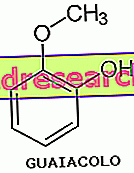Vegetable tar : it is a viscous liquid with a pungent and intense odor, of a blackish brown color, obtained by dry distillation of the wood of some trees, such as birch, beech and pine. The Norway tar, obtained by dry distillation of the Norwegian pines, is the most valuable.
Mineral tar : is obtained from the distillation of bituminous coal (coal tar or mineral tar); it is a black, dense and viscous liquid. It has a stronger action than the previous one, but it is also more irritating to the skin.
On the market there are numerous non-standard formulations based on tar (mineral or vegetable), so it is good to be guided in the choice directly by your doctor or by your pharmacist / herbalist.
Vegetable tar is mainly used in dermatology, because it is an excellent disinfectant, antimicrobial and keratoplastic. Dry distillation allows the passage from the liquid state to the gaseous state of low molecular weight compounds, such as phenols, which undergo a reduction. Sometimes, vegetable tar is so rich in compounds

The fractional distillation of these compounds leads to the isolation of phenolic chemical classes, which can be used in other sectors. For example: guaiacol, a strong disinfectant used in dentistry, is obtained from the fractional distillation of vegetable tar; another compound obtained by fractional distillation of tar is creosote (20% of guaiacol), a phenolic fraction used as a disinfectant in the health sector.
Property
The tar has keratoplastic properties for which once applied locally it determines, with a mechanism not completely known, a reduction in the number and size of epidermal cells. It also has an anti-itching and anti-irritative action.
The tar was also incorporated into shampoos, used for seborrheic dermatitis, psoriasis of the capillizio and dandruff.
Vegetable tar shampoo against dandruff: applied to wet hair, it must be foamed and left to work for a few minutes. Its tolerability must be tested; if its action is too intense to use every day, it should be used alternating with a mild shampoo.
Shampoos and lotions based on mineral tar (also in association with 1% salicylic acid) are used - under medical advice - to combat scalp psoriasis, while the direct application of lotions or ointments based on 3-5% mineral tar on skin patches is indicated for skin psoriasis. Because of its photosensitizing action, mineral coal is often used to increase the therapeutic action of UV light in the treatment of psoriasis.
- Properties: antipruritic, keratoplastic and mild antiseptic. Good antibacterial, resolving, balsamic and parasiticidal activity due to its high phenolic content
- Indications: Psoriasis (in this case the use of mineral tar is preferred), Forfoa, chronic Eczema
Side and unwanted effects
Tar shampoos can make hair a little darker, especially those that are particularly light (blond or white). Even the smell is generally not appreciated by the user, as is the appicocisità which makes it difficult to remove by staining clothes and sheets.
The tar is a photosensitizing substance and as such makes the skin more sensitive to the sun, increasing the risk of slipping.
Tar should never be applied to damaged or open skin. On sensitive skin or in case of excessive use it can cause side effects such as skin irritation (contact dermatitis), acneiform eruptions, formation of comedones, photosensitivity, hypersensitivity reactions and folliculitis. It is therefore important that the tar is used in appropriate concentrations (not exceeding 2%) and incorporated into non-occlusive vehicles. For example, there are tar-based products in gel and at low concentrations, cosmetically more acceptable because they do not stink, can be used every day and washed off easily. In general, tar is contraindicated in case of easily irritable skin or during acute skin rashes.



